Content but not passionate about her career as a Financial Analyst, Cynthia Samanian, 29, took what some might call a bit of a U-turn. Happily, the departure landed her at the doorstep of one of the best resources in the country—Harvard Business School. As they say, only time would tell, and she eventually discovered that her true passion lay with the San Francisco tech start-up world, specifically at an up-and-coming company called simply, Path.
As Path’s Product Manager, which focuses on a smartphone app enabling users to connect and share with friends and family, Cynthia has her hand in virtually every department of the company—from engineering and design, to analytics. By really listening to the needs and wants of consumers, Cynthia has been able to make Path the most efficient and beautifully designed app it can be.
Even more impressive when looking was her lack of complacency in finding her role at Path. She didn’t sit back and wait to apply for open positions—instead, she networked with its founding members and developed customized financial models to show them why they needed her. Through this tactic, she became Path’s first ever non-technical Intern, then Business Manager and now Product Manager. Her advice? “Even if you think you’re under-qualified, still reach for the role—hard work, confidence and a positive attitude can take you far.”
EDITOR'S NOTE: Cynthia is now a Career Contessa Mentor! Click here to book personalized career advice with her.
Her Starting Point
Your first post-college job was as a Financial Analyst with GE Capital. What did you learn about yourself from that job? Where did you go from there?
Working at GE was an incredibly formative career experience. I spent my first two years in GE's Financial Management Program, which is a rotational finance and leadership program. Every six months, I moved to a new location, team and role; it was so important for me to understand how to dive in, learn and make an impact quickly. As part of the program, I was also given significant ownership on key parts of the business planning. With that responsibility came invaluable exposure to senior leadership, and I learned how to present data effectively to managing directors, CFOs and CEOs.
During my last year at GE, I started exploring the tech startup community in Seattle. I found myself spending evenings at meet-ups and events, aiming to learn as much as I could about consumer tech startups. At the time, I was just a fly on the wall. I had no experience as an engineer or designer, and certainly had no idea what product management even was. But those memories of watching passionate entrepreneurs demo their products left a lasting impact. I knew I was one step closer to my career passion.
Why did you decide to go to business school? How has your business education played a role in your career?
My motivation to go to business school was based on my personal interest and professional goals. I applied to business school when I was 25, without any real responsibilities or commitments. I had heard that the MBA education was not only about the case method and group projects, but also about building relationships with a diverse group of people and even traveling the world. That sounded like a really compelling opportunity for me.
From a professional perspective, I was excited by the chance to take two years out of the workforce to fully immerse myself in career exploration. My experiences in the Seattle tech community helped me validate my interest in consumer tech startups, but I wasn't sure what the next step was. Business school gave me the time and resources to figure out my game plan.
Reflecting back on my business school experience, it was truly the right move for me. As a full-time student, I spent my time meeting with venture capitalists, working on my own business ideas and taking classes focused on entrepreneurship, strategy and team leadership. I competed in the school's business plan competition and was a student entrepreneur-in-residence at a venture capital firm, which allowed me to further pursue business ideas in spaces such as food and home decor. In just two years, I had the unique opportunity to explore so many different ideas and roles.
My MBA education has helped me in my role at Path more than I had expected. I often reach for course notes from my strategy class or re-read a chapter from a book on team building. Also, I'm very connected to my classmates and reach out to them often for any questions or advice.
How did you come to work at Path? What do you love most about the company?
It's really interesting how relationships work—sometimes connections form in ways you would least expect! A few years ago, a good friend and colleague of mine left GE to start his own company, and was really plugged into the tech startup community. He happened to be visiting Boston when I was thinking through summer internship options. At the time, I was thinking of either working on my own startup idea, joining a larger tech company or finding the right job at a startup. My friend had some great insight into the value of learning from others before starting your own company and encouraged me to look at Path for a possible internship.
I spent the next several months researching Path and the general social networking space. I flew out to San Francisco in January to meet with their VP of Business, Matt Van Horn, thanks to a warm introduction by my friend. I was kindly turned away because, with less than twenty people on staff at the time, Path wasn't looking for a non-technical intern. However, Matt had suggested I attend SXSW Interactive, a festival in Austin focused on tech entrepreneurship, as a way to connect with other startups. I followed Matt’s advice and took it a step further by showing up to a SXSW party hosted by Path. Through a quick conversation with Matt at the party, I was able to better understand Path’s challenges and needs.
A few weeks later, I flew back to San Francisco—this time not to explicitly ask for an internship, but instead to present a growth and monetization model I had built just for Path. Rather than tellPath what I could do, I decided to show them. And it was much more effective. A few weeks later, I landed the summer internship.
What attracted me most to the company from the start is the same reason why I love the company today—the people. Path is made up of extremely passionate and experienced people. Everyone believes in building high-quality products, and we have a lot of fun doing it.
Her Big Break
Your career at Path started in business management before transitioning to product management. What is the difference between the two? Why did you pursue product management?
One thing about startups is that titles are generally pretty informal. My official title was Business Manager, and that was because I wasn't an engineer, designer or another traditional role. My position included an interesting mix of business development and product strategy. One of my key projects involved exploring different monetization options. When we started work on the next version of the product, Path 3, we formed smaller teams, each focused on features such as monetization, messaging, and search. At this time, there was an open role for a Product Manager to lead monetization, and I threw my name in the hat. I knew I had a lot to learn, but I was confident I could figure it out with the help and support of the team.
Tell us about your daily tasks and responsibilities as a Product Manager at Path.
Product Managers at Path are responsible for overseeing the development of new features and versions of the app, from start to finish. On a day-to-day basis, I’m working with engineers and designers to help bring the company’s vision to life, and I also conduct a lot of research to inform future versions of the app and overall company strategy.
How much of your job includes technical skills? How much includes analytical skills?
I estimate that my job is 80% analytical and 20% technical. Most of the time I’m interpreting data and using the findings to inform product decisions. This data includes quantitative data, such as user metrics and revenue numbers, as well as qualitative information that we gather through user interviews and surveys. I also spend a lot of time constructing financial and growth models that help inform our product strategy.
In terms of technical skills, there's a strong bias for Product Managers to have a degree in computer science. I've seen successful PMs with and without this degree, but I think the most important trait is to be technically aware. As a PM, you probably won't be writing production code for your company, but you should understand what the code means at a high level.
Also, the type of technology you should seek to understand depends on the product. For example, since Path is a mobile-only app, it's very important for me to know the general differences between mobile platforms such as Android, iOS, etc.
When designing a new product, what types of questions do you, as a Product Manager, ask?
I am always putting myself in the position of our users. I ask myself: "Why does this feature matter to users? What is the outcome we're expecting by releasing this?" You can usually get to the purpose of any new feature or product by asking "why" several times, and that's what I always try to do. It's also important to define and analyze the product's key metrics to understand if it was as successful as we expected.
Her Perspective
What is your favorite part of your job? What is the most challenging?
The absolute best part of my job is launching new products. Bringing new features to our users is exciting and rewarding, because it's the culmination of several months of hard work across the entire team.
The most challenging part of my job is prioritizing my time. My job is never done and it's very easy to get pulled in many directions. As a Product Manager, I am the central point person for all other functions in the company (engineering, design, business development, legal, finance, etc.), so I always need to be available to answer questions or concerns about the product.
To help manage my time, I start each week with a list of important priorities and try my best to stick to it unless something truly urgent arises.
If we had the chance to peek at your schedule, what would an average day look like?
There's really no such thing as an average day—and that's actually what I love about my job. The activities I spend my time on during the day are completely tied to the status of the product. For example, if we're in the early phases of product development, I'll spend most of my time conducting market research and user interviews. If we're preparing for a launch, then I'm probably running around to get the latest updates from our engineers, working with our PR team on communications and helping our user support team update our FAQs.
What advice would you give to aspiring Product Managers?
Most people I talk to about product management careers are looking to switch from a non-technical role, whether in finance, marketing or an unrelated field. My biggest advice for anyone looking to work in product management at a startup is to be passionate about the company's product. As a Product Manager, you eat, live and breathe the product, so it’s a must to be interested in it.
Once you find a startup you're interested in, be persistent and be patient. Get into the company in any way that you can, even if it means working in your current function. Use this time to hit it out of the park and learn more about what product management is all about at the startup. If the startup is growing and hiring, they'll most likely hire a Product Manager, and if you've proven yourself, you could be a competitive candidate.
What are some of your favorite books, links or resources for someone interested in getting started in product management?
In my view, being a great Product Manager is about understanding design, engineering and business, and bringing it all together. When I transitioned to product management, I was confident about my business knowledge through my prior work experience and education. But there was so much to learn in terms of design and engineering.
There are so many books that cover these areas, but I've found classes to be the most helpful. Over the past few years, I've taken courses in computer science (Intro to CS at Harvard, a Python workshop in SF) and user experience design (General Assembly).
Regarding product management specifically, there are some great blogs I read regularly. Adam Nash, former VP of product at LinkedIn, has a fantastic blog with great posts focused on product management. There's also a very popular Quora post about what makes a top 1% Product Manager. I try to re-read it often.
Figuring out what career to pursue can be tough. What advice would you give to women working through their own professional learning curve?
My biggest piece of career advice to women is to define what you want and don't wait for anyone to hand it to you, especially if you want to work at a startup. All three of my roles at Path (intern, business manager and PM) didn't even exist before I asked for them. Had I waited for the perfect job posting or for someone to ask me to apply, I wouldn't be in my role today. Even if you think you're under-qualified, still reach for the role—hard work, confidence and a positive attitude can take you far.
EDITOR'S NOTE: Cynthia is now a Career Contessa Mentor! Click here to book personalized career advice with her.
You May Also Like
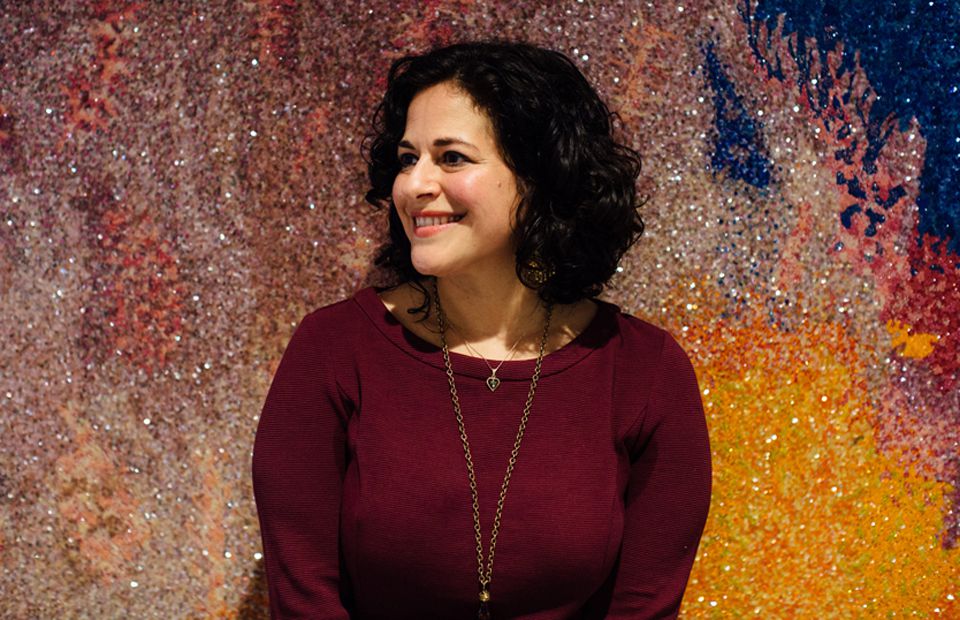
Consumer Goods
Our New Dream Job? Vice President of Social Consciousness & Innovation
"The truth is, having a more responsible supply chain or more responsible business is made up of lots of small actions. And one thing that I really love about my work is that nothing is black and white. It's all gray space."
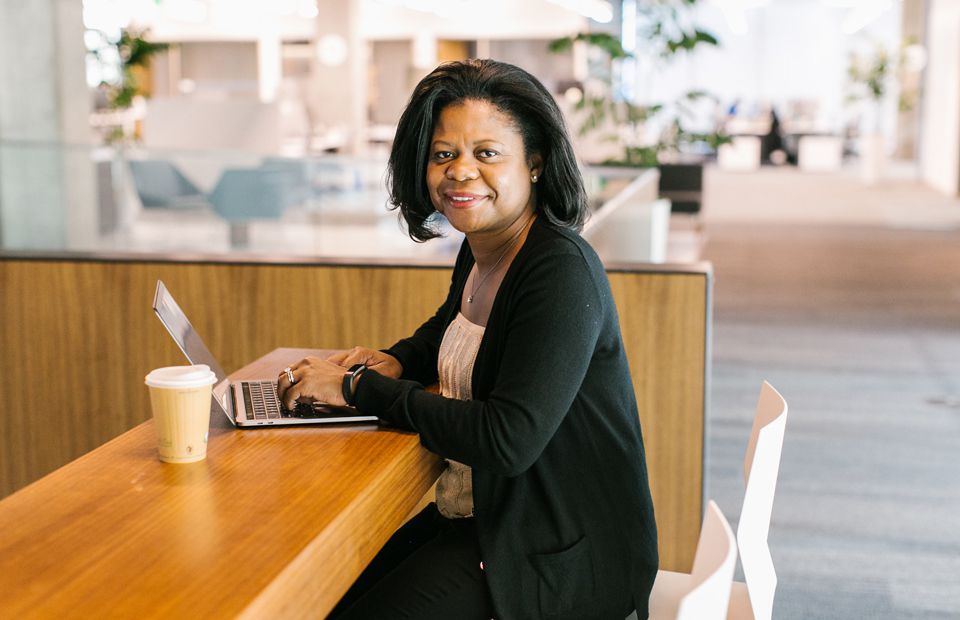
Consumer Services
An Executive at Intuit on How to 'Send the Elevator Back Down'
"What I often tell engineers—especially women engineers—is that it’s good to be excellent, but you’ve got to make sure it’s not a well-guarded secret."
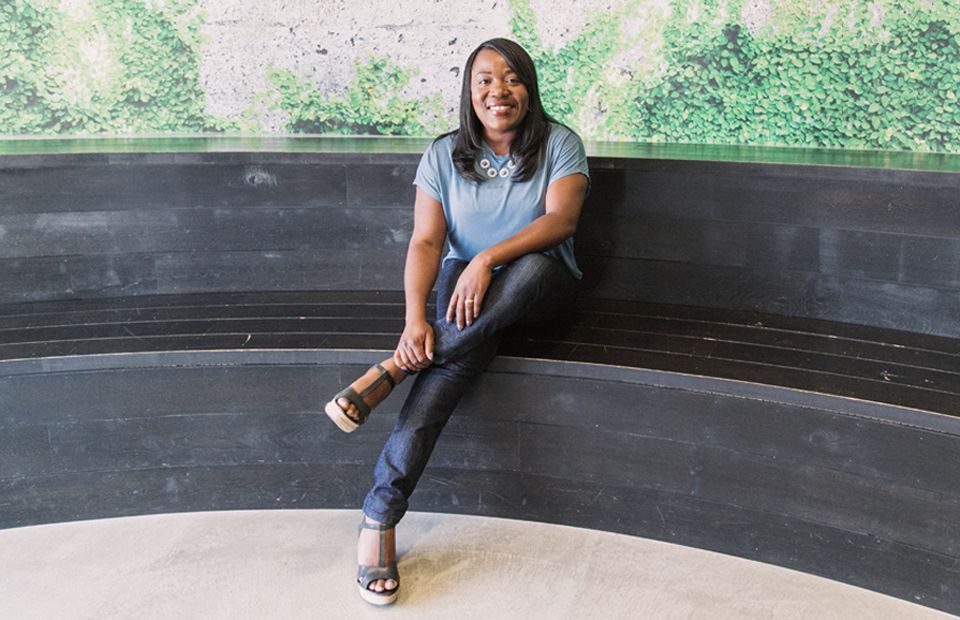
Consumer Services, Technology
A Top Lawyer Talks Leadership, Transparency, and a Music Empire's Goals for Diversity
As Chief Counsel at Pandora, Adelmise Warner has a few thoughts on leaning in.

Consumer Goods
Rising Tide Society's Founder on Why Not Everyone's Cut Out for Entrepreneurship
Natalie Franke on creative entrepreneurship and her journey with Rising Tide Society
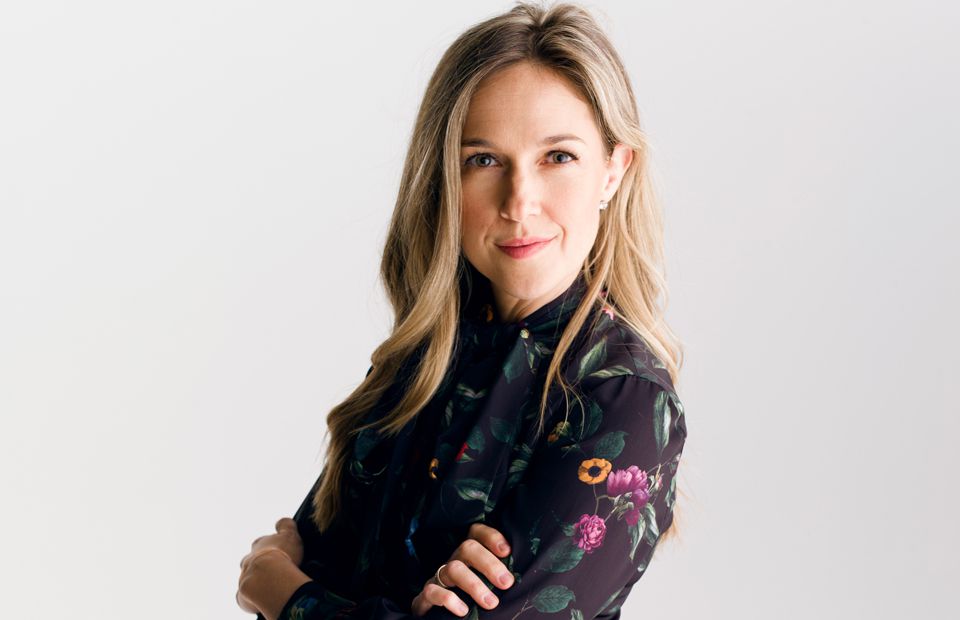
Consumer Services, Technology
Here's How a Female V.P. at a Tech Startup Faces the Gender Gap
Nikki Pechet on writing your own maternity leave policy and taking a job for joy, not money.
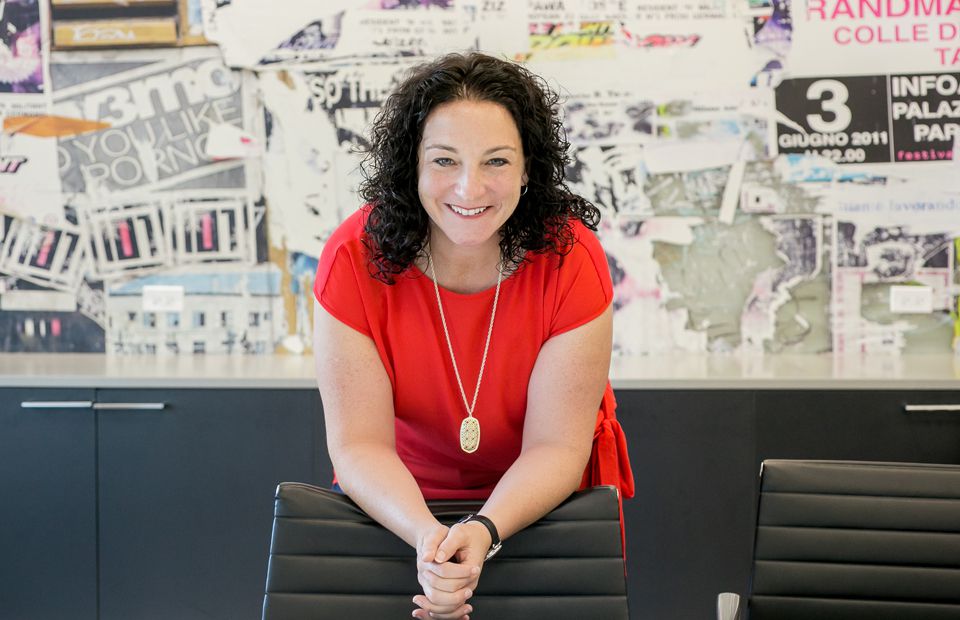
Consumer Goods, Technology
A Sales V.P. on What It's Like to Work at Pandora
Casey Forbes is living an audiophile's dream career.
Get the Best Career Advice Delivered To Your Inbox
Join our newsletter to stay in the loop.
